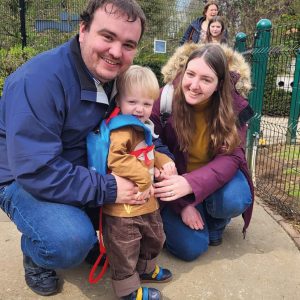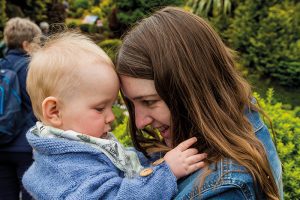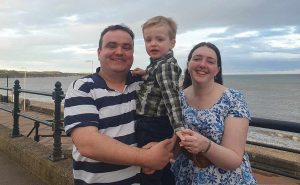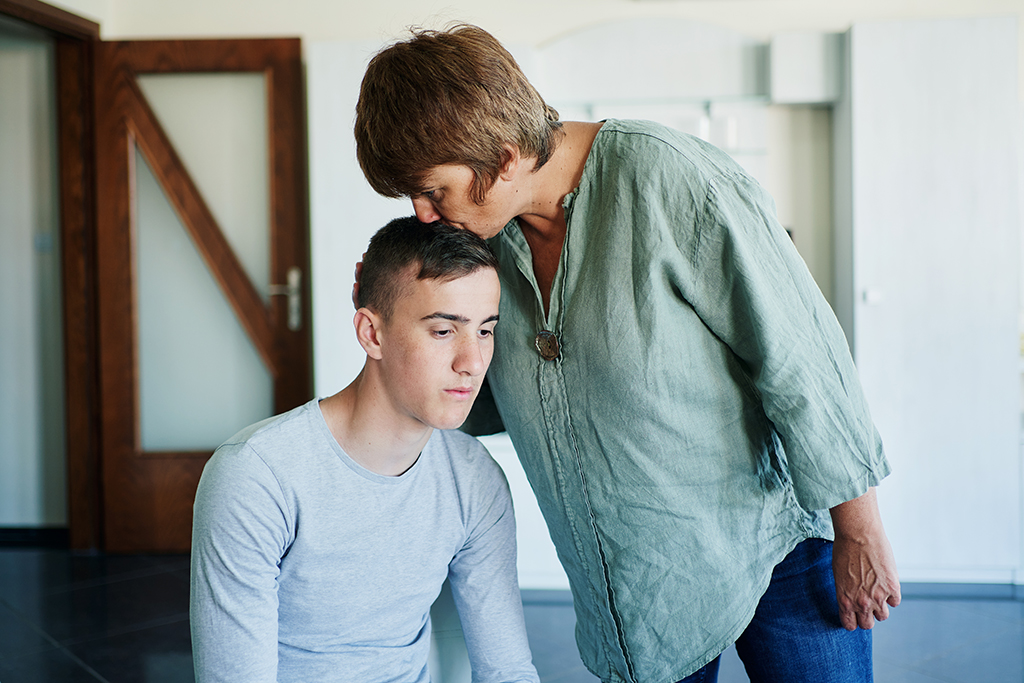 Jo Scott had a lot of loves in her life – music, teaching, raising epilepsy awareness – but the greatest one, and one that made her happiest was her family.
Jo Scott had a lot of loves in her life – music, teaching, raising epilepsy awareness – but the greatest one, and one that made her happiest was her family.
“Jo was always smiling. She was a gentle, kind young lady with so much love to give,” her mum, Caren, said.
She was the youngest of three children, and spending time with her siblings, grandparents, nieces and nephews was the “best of times”.
“But above all,” she said, “she loved her husband Craig and her now four-year-old son John.”
To Craig, Jo was the “centre of our little family. A brilliant mum, she was patient, loving, caring and unselfish. She always thought of everyone else before herself and was loved by everyone who knew her.
“Having a child was everything Jo ever wanted, and the love she had for our son John was endless. The bond they had was special and she was never happier than when the three of us were all together.”
All together
 Jo died in May 2024 from sudden unexpected death in epilepsy (SUDEP). It came out of the blue and brought the family’s life “crashing down”, Caren says.
Jo died in May 2024 from sudden unexpected death in epilepsy (SUDEP). It came out of the blue and brought the family’s life “crashing down”, Caren says.
The morning of the day she died, Jo, Craig and John had been in Jo’s happy place – all together. “Jo usually sorted John on a morning due to my shift pattern,” Craig explained. “But unusually, that morning we had done so as a family. We hugged together as a three before they left for their taxi.”
When Jo passed away that evening, she had been putting John to bed. “Our wonderful son simply stayed with her until Jo’s mum arrived,” Craig said. Caren said John had not been distressed by this at all and simply said: “Mummy is sleeping.”
Stress and tiredness had been seizure triggers for Jo. When she first met Craig in 2015, her seizures were one every six months. Over time, circumstances meant they became more frequent.
The stress from a previous job, which had turned “toxic”, and changing epilepsy medication when she became pregnant meant her seizures became more frequent and lasted longer. The COVID-19 pandemic made contact with her neurologist increasingly difficult too.
At their most frequent, her seizures were happening every six or seven weeks.
Craig said: “Jo was always bullish about the reduced side effects of her medication dosage as worth the risk of seizures, but whether more input from professionals might have shifted that balance we will simply never know.
“We had mitigations in place to manage caring for John as a baby (things like Jo never doing bath time alone, and changing nappies being done on the floor). As such, Jo was able to be a ‘normal’ mum.
“The worry about seizures was ever present, but, as with so much in our lives, it was a case of mitigating and balancing risk.”
What is SUDEP?
Sudden unexpected death in epilepsy (SUDEP) affects around 1 in 1,000 people with epilepsy each year.
Everybody’s risk is different, depending on each person’s type of seizures and how well controlled they are, and whether they happen during sleep.
You can reduce the possible risk of SUDEP through things like:
- Taking your epilepsy medication exactly as prescribed and finding out in advance what to do if you miss a dose of your medicine.
- Avoiding situations that can trigger your seizures, such as missing a dose of your medicine, not getting enough sleep or drinking too much alcohol
- Asking your doctor for a review of your epilepsy if your seizures aren’t controlled
- There is more information on the Epilepsy Action website
Ability for unconditional love
 Jo was diagnosed with epilepsy in 2000 but never let epilepsy stop her living her life to the full. She was a Girl Guide, she went camping, she travelled by herself both within and outside the country. While her family worried for her, they never wanted to hold her back.
Jo was diagnosed with epilepsy in 2000 but never let epilepsy stop her living her life to the full. She was a Girl Guide, she went camping, she travelled by herself both within and outside the country. While her family worried for her, they never wanted to hold her back.
While at university, studying to become a music teacher, Jo became involved with HCPT, a charity offering holidays to the south of France to disabled and disadvantaged people. She went along three times with the group. Her experience fostered a desire for her to work with children with additional needs.
Craig said: “She always championed disability and working with children who were often misunderstood or just needed love no matter how difficult the situation suited Jo’s patient nature and ability for unconditional love.”
Jo realised her dream to work with children with additional needs shortly after John was born. While there, Jo did a huge amount to spread awareness and education about epilepsy and seizure first aid to the children she taught.
Jo was always an active supporter of Epilepsy Action. She would answer questions, complete questionnaires and join discussions on social media.
Jo and Craig took part in an Epilepsy Action survey about pregnancy when they were expecting John, and she campaigned to her local MP for more epilepsy specialist nurses. She took part in as many fundraising activities as she could.
Craig and the rest of Jo’s family have continued to carry the torch for Jo, taking on running challenges and fundraisers, and raising thousands to support people with epilepsy. Craig ran the Great North Run this year and has now raised more than £10,000 through different events.
Caren said: “She lived a full life, albeit with a few minor adjustments. She fulfilled her dreams, reached her goals, she just wasn’t able to live the dream for very long.
“Live your life, reach for the stars, fulfill your dreams and raise awareness along the way.”

SUDEP and epilepsy-related deaths
Having epilepsy comes with certain risks. Although it rarely happens, it is important to know about the risk of dying from epilepsy.




